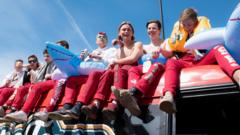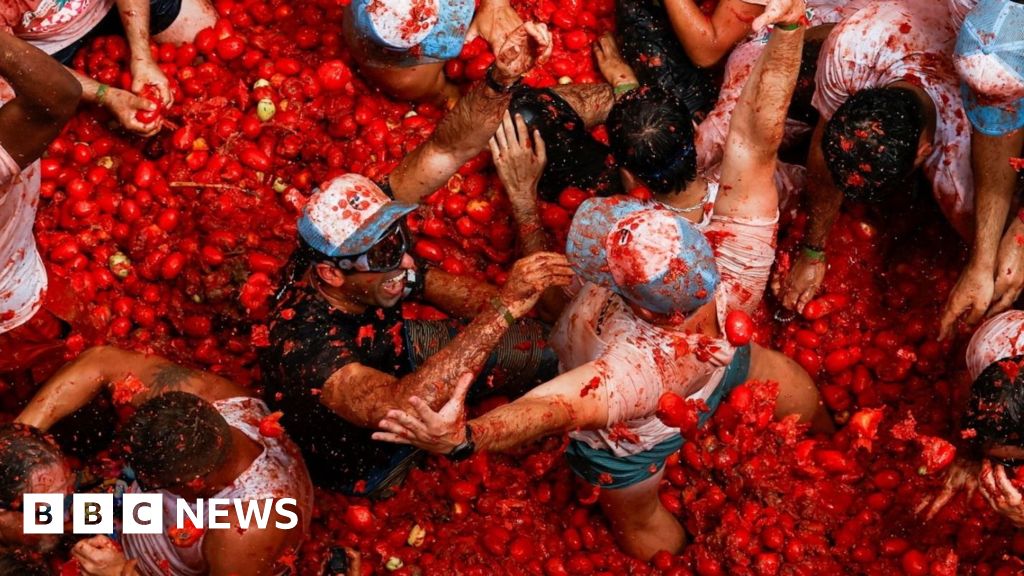In Norway, the excitement of graduation season has transformed into a whirlwind of late-night celebrations known as "russefeiring," where school leavers, or russ, don colorful overalls and party on specially rented buses. These festivities are deeply ingrained in the culture, marking the transition from students to graduates, culminating in Norway’s national day on 17 May. However, the tradition has spiraled into a pressing concern for educators and parents, with many urging for a reevaluation of the celebrations.
Selma Jenvin-Steinsvag and her friend Aksel, both 18, epitomize the carefree spirit of this time as they rush to the metro, knowing their written exams are nearly complete. But for increasing numbers of youths, the partying begins weeks before their exams, leading to troubling behaviors. Edvard Aanestad, a 19-year-old from Oslo, explained, “It’s a party bus! We go out every night for a month and just have fun,” emphasizing the allure of the month-long celebration. Nevertheless, many parents and officials are worried that these festivities could harm their children's mental health and academic performance.
Norwegian parents lament the significant costs associated with these celebrations, where renting and outfitting a party bus often leads teens into debt. Complaints have surfaced about issues related to excessive drinking, drug use, and inadequate sleep cropping up alongside high-pressure exam periods. Uniting in concern, Prime Minister Jonas Gahr Støre remarked that while he also enjoyed his graduation, the current party culture has spiraled beyond control.
Parents like Solveig Haukenes Aase have organized to tackle what they see as negative trends. “It has even started to affect middle school kids,” she said, advocating for safer environments for young people. Education Minister Kari Nessa Nordtun acknowledged that the overlap of parties with exam periods contributes to declining student focus and performance. Efforts are being made to move celebrations to post-exam periods and eliminate the regularity of events deemed exclusionary or excessively expensive.
Dating back to the early 1980s primarily among elite schools, the tradition has expanded nationwide, now frequently prompting financial strain among participating youth. Further, Ivar Brandvol, a culture commentator, noted that the motivation for party buses has shifted from a collective experience to smaller, financially exclusive groups. The exorbitant budgets often require innovative fundraising methods, and many teens find themselves selling items like toilet paper to recoup costs.
In acknowledging the dangers of commercialization and safety, authorities have indicated a desire to revoke the use of converted buses with sideways seating, aiming to curtail unsafe practices. However, many school leavers, like Edvard and Henrik, see these changes as too restrictive. They argue that banning certain buses may exacerbate feelings of exclusion.
As the conversation continues about the future of this cherished tradition, many voices, both young and old, are calling for a balanced approach that honors the celebratory spirit of the russefeiring while ensuring a safe and inclusive experience for all participants.



















